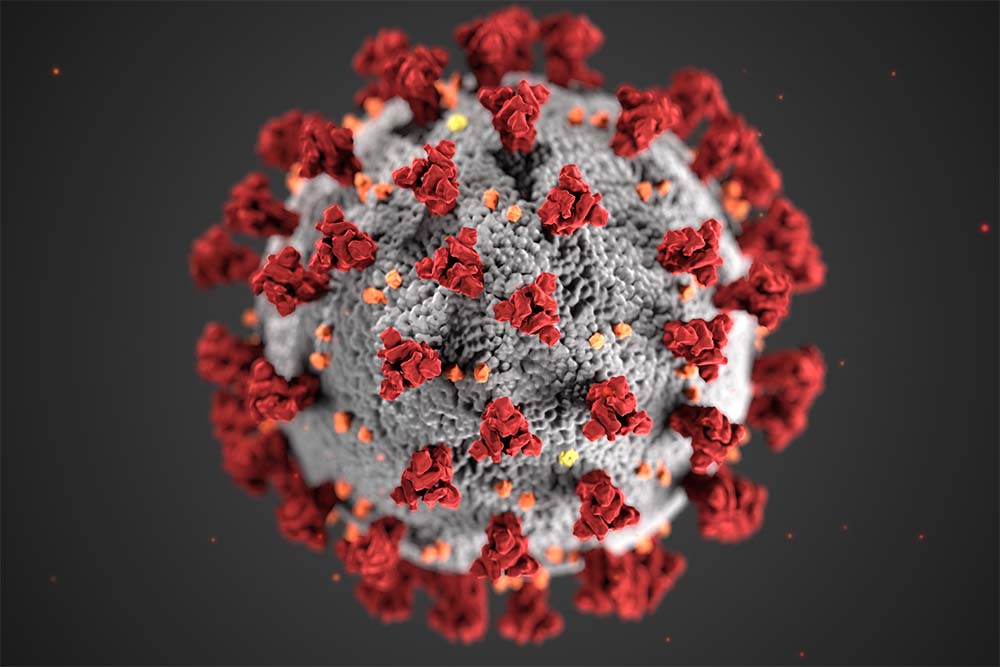
- Details
- By Native News Online Staff
WINDOW ROCK, Ariz. — Centers for Disease Control and Prevention (CDC) Director Dr. Rochelle Walensky stated on Monday that the country may be at risk of increasing Covid-19 infections due to the spread of Covid-19 variants and reports of some states easing public health measures that help prevent the spread of the coronavirus.
“The variants are basically a mutation of the Covid-19 virus, and in some cases, it appears the mutations allow the virus to become more contagious among people, Navajo Nation President Jonathan Nez said on Monday. “Researchers are still studying the variants and learning more about them, so it’s very important that all of our Navajo Nation residents be very cautious.”
Nez advises that Navajo citizens should not travel off the Navajo Nation because there are areas nearby where the variants have been detected recently.
“We’ve had a gradual decline in new infections here on the Navajo Nation for several weeks, but we know that it doesn’t take much to have another large surge. We have to inform one another and hold each other accountable,” Nez said.
He wants Navajo citizens to let their family members and friends who may be planning to travel that they are putting themselves and others at risk.
“The vaccines are being administered at high rates here on the Navajo Nation and they are highly effective, but they do not guarantee prevention of Covid-19,” Nez said.
The CDC said there was a two percent rise in Covid-19 cases last week versus the prior week.
On Monday, the Navajo Department of Health, in coordination with the Navajo Epidemiology Center and the Navajo Area Indian Health Service, reported 12 new Covid-19 positive cases for the Navajo Nation and no recent deaths. The total number of deaths remains 1,170 as previously reported on Sunday. Reports indicate that 16,109 individuals have recovered from Covid-19, and 244,483 Covid-19 tests have been administered. The total number of positive Covid-19 cases is now 29,754.
Navajo Nation Covid-19 positive cases by Service Unit:
- Chinle Service Unit: 5,473
- Crownpoint Service Unit: 2,855
- Ft. Defiance Service Unit: 3,537
- Gallup Service Unit: 4,698
- Kayenta Service Unit: 2,631
- Shiprock Service Unit: 5,005
- Tuba City Service Unit: 3,607
- Winslow Service Unit: 1,930
* 18 residences with Covid-19 positive cases are not specific enough to place them accurately in a Service Unit.
On Monday, the state of Arizona reported 1,039 new cases, Utah reported 257, and New Mexico reported 166 new cases. The Navajo Nation’s daily curfew remains in effect from 9:00 p.m. to 5:00 a.m. (MST) seven days a week.
Health care facilities across the Navajo Nation continue to administer Covid-19 vaccines during drive-thru events or by appointment. If you would like to receive the vaccine, please contact your health care provider for more information for your Service Unit. On Tuesday, March 2 at 10:00 a.m. (MST), the Nez-Lizer Administration will host an online town hall on the Nez-Lizer Facebook page and YouTube channel to provide more Covid-19 updates.
For more information, including helpful prevention tips, and resources to help stop the spread of Covid-19, visit the Navajo Department of Health's Covid-19 website: http://www.ndoh.navajo-nsn.gov/Covid-19. For Covid-19 related questions and information, call (928) 871-7014.
More Stories Like This
Native News Weekly (August 25, 2024): D.C. BriefsUS Presidents in Their Own Words Concerning American Indians
Native News Weekly (December 14, 2025): D.C. Briefs
Wounded Knee Massacre Site Protection Bill Passes Congress
Two Murdered on Colville Indian Reservation
Help us defend tribal sovereignty.
At Native News Online, our mission is rooted in telling the stories that strengthen sovereignty and uplift Indigenous voices — not just at year’s end, but every single day.
Because of your generosity last year, we were able to keep our reporters on the ground in tribal communities, at national gatherings and in the halls of Congress — covering the issues that matter most to Indian Country: sovereignty, culture, education, health and economic opportunity.
That support sustained us through a tough year in 2025. Now, as we look to the year ahead, we need your help right now to ensure warrior journalism remains strong — reporting that defends tribal sovereignty, amplifies Native truth, and holds power accountable.
 The stakes couldn't be higher. Your support keeps Native voices heard, Native stories told and Native sovereignty defended.
The stakes couldn't be higher. Your support keeps Native voices heard, Native stories told and Native sovereignty defended.
Stand with Warrior Journalism today.
Levi Rickert (Potawatomi), Editor & Publisher

